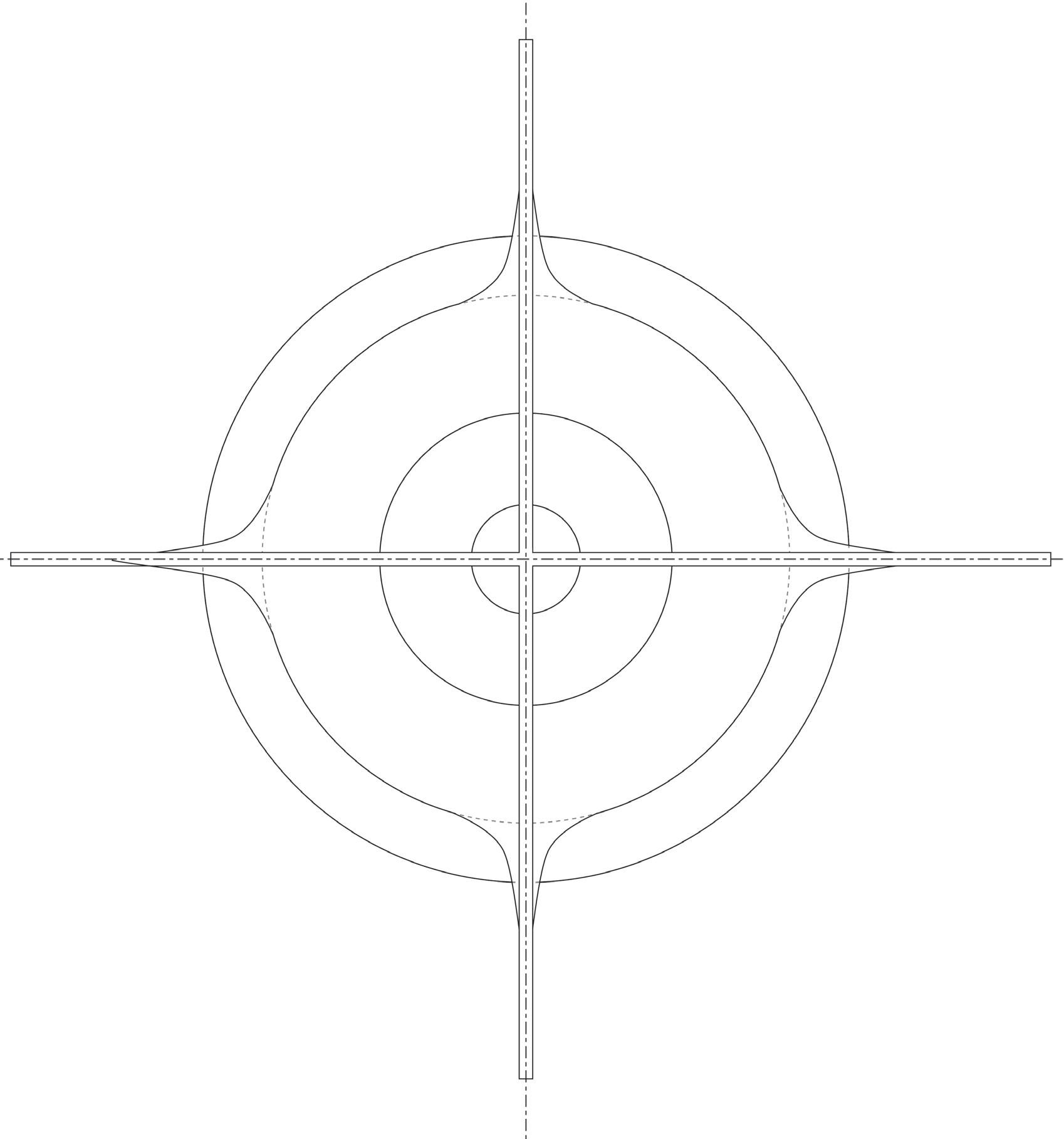geometry Regardless of how complex a design may seem, it can almost certainly be broken down in accordance to a basic geomety. One such way to study a structure's geometry is by looking at it in terms of geometric primitives, or the basic shapes we recognize. For instance, we can see that Alberti's facade on Santa Maria Novella can be inscribed within a square, and further described by repeating and overlapping series of squares, circles, and triangles. Similarly, Noguchi's swing set in his Piedmont Park Playscape is composed primarily of a hierarchy of triangles; two main
triangles can be inscribed within a larger, imaginary triangle, while the horizontal supports for the swings form a total of five smaller triangles within them. Geometry can also be understood in terms of symmetry, ratios and proportions. Analyzing a work's geometry allows us to better understand both the architect's intent and the technical rationale for its visual appeal; furthermore, we can employ geometric principles to better ground and rationalize new designs.






















